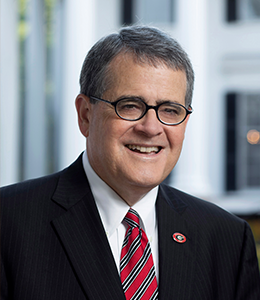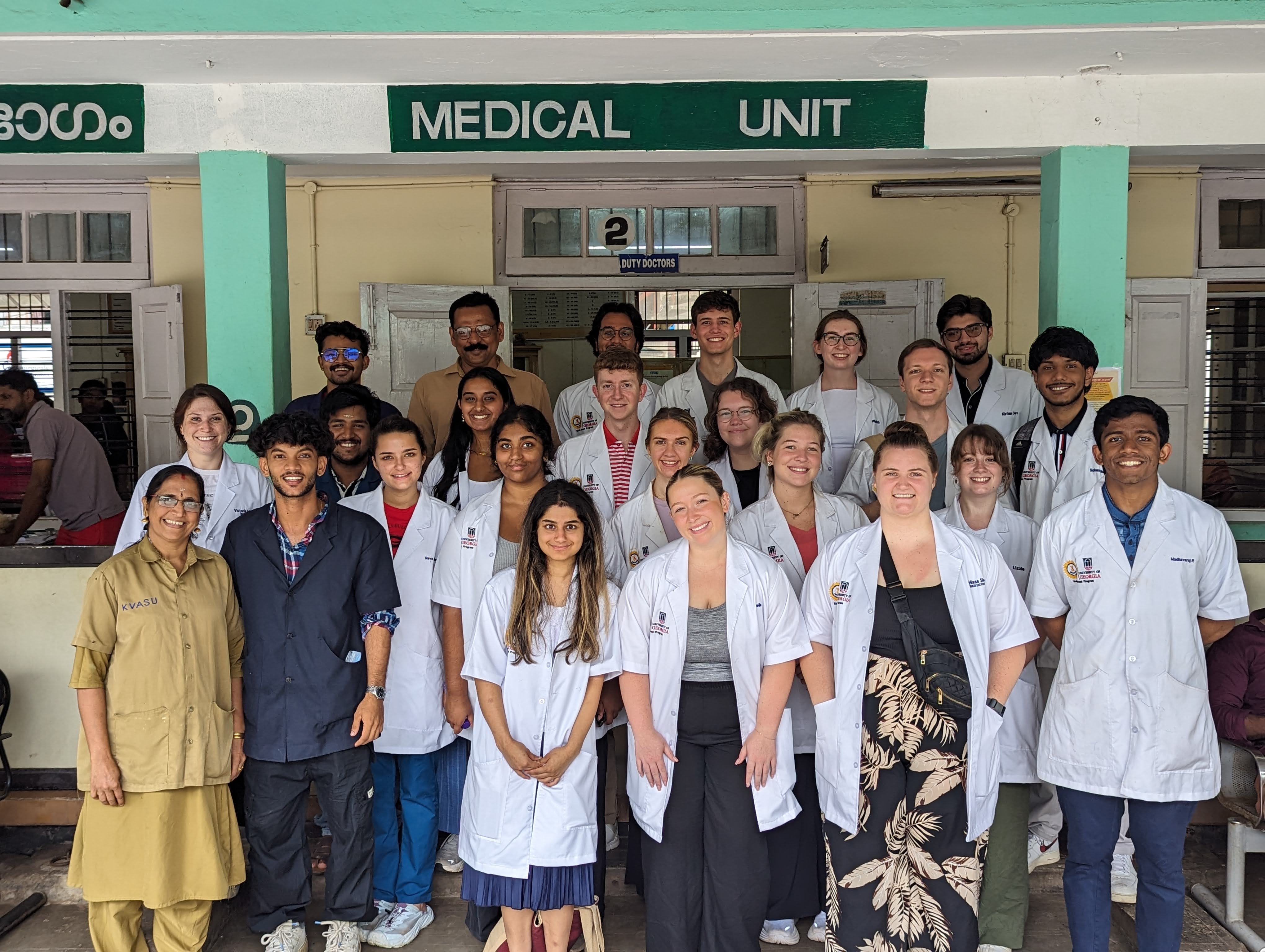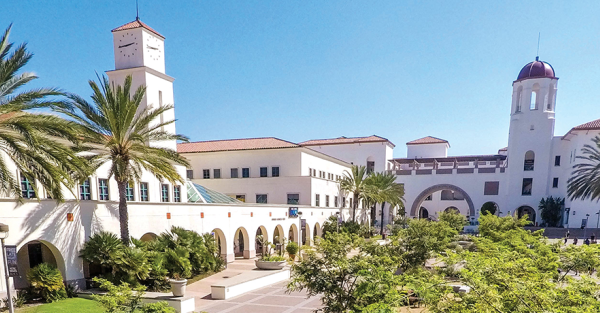University of Georgia
The University of Georgia, a land-grant research university in Athens, Georgia, serves over 44,000 students, including more than 3,000 international students. Ranked as a top 20 public university by U.S. News & World Report for the past nine years, it has transformed from a regional institution into a national leader in study abroad participation, with students traveling to 83 countries in 2023–24 and faculty leading a record of over 120 study abroad programs annually. The university has also built comprehensive support systems for international students and scholars, developed strategic research partnerships that have generated millions in external funding, and embedded global perspectives throughout its curriculum.
The spring of 2020 brought the University of Georgia’s (UGA) international programs to a virtual standstill. Study abroad programs were cancelled, international students were stranded far from home, and faculty travel ceased entirely. What had taken decades to build seemed to unravel in a matter of weeks. Yet just four years later, in 2024, the university had not only recovered but achieved record-breaking numbers across almost every metric of international engagement.
Study abroad participation surged to well above pre-pandemic levels while the university hosted a record number of international students in fall 2024. The dramatic turnaround reflects what UGA calls a “transformational reimagining of internationalization,” one that prioritized sustainability, innovation, and strategic growth over simply replicating what had existed before.
Global education is an expansion of the UGA campus into the world. —Associate Provost Martin Kagel
Coordinating this effort is UGA’s Office of Global Engagement (OGE), which has grown from a small unit with a handful of employees in the early 1980s to a comprehensive operation of more than 50 staff members across four distinct units today. Under the leadership of Associate Provost Martin Kagel, the office manages everything from visa sponsorship to faculty-led programs spanning six continents. Kagel joined UGA as a German literature professor in 1996 and brings his own experience as an international student and immigrant to his role. “Global education is an expansion of the UGA campus into the world,” he says.
UGA’s internationalization efforts reflect broader changes that have occurred at the university over the past three decades. What was once a regional campus has evolved into a highly selective institution that received close to 48,000 applications for about 6,200 first-year seats in its most recent cycle.
OGE also underwent a gradual evolution over the past decade, restructuring from the smaller Office of International Education to its current comprehensive model. The office now operates four units: global education, immigration services, international initiatives, and an intensive English program, along with operating two residential centers in Oxford, England, and Cortona, Italy. This centralized management allows for coordinated support while maintaining the flexibility that enables UGA to offer such a diverse range of programs.
Expanding Access and Engagement
UGA’s study abroad portfolio includes everything from weeklong spring break programs for first-year students to semester or yearlong exchanges. During the 2023–24 academic year, 4,125 students studied abroad—and about half participated in faculty-led experiences.
Two important pillars of UGA’s study abroad offerings are its two residential centers in Italy and the United Kingdom. The Oxford Centre hosts about 300 students annually who take classes with Oxford faculty, while the center in Cortona serves 300–350 students each year as an arts-focused campus with studio spaces for drawing, painting, jewelry and metalwork, ceramics, and photography. These centers represent a significant institutional investment in providing students with immersive academic experiences abroad.
UGA has also made significant strides in removing students’ financial barriers to studying abroad. OGE alone awarded over $1 million in study abroad scholarships in 2024–25, including 600 passport scholarships, which provide undergraduate students who have never had an adult U.S. passport with $170 to cover the costs of the passport. OGE also supports participation of traditionally underrepresented students in study abroad. Intensive mentoring has helped 166 UGA students win Benjamin A. Gilman International Scholarships that have supported students of limited financial means since the 2019–20 academic year.
Furthermore, the university has integrated sustainability into its study abroad programming through Sustainability Abroad Micro Grants (SAMGrants), offering students $1,000 to pursue independent sustainability projects while abroad. UGA awarded 40 SAMGrants in 2024, covering everything from community-identified infrastructure improvements to sustainability research.
Engaging First-Year Students
UGA has specifically focused on engaging first-year students, a population that historically represented only 1 percent of study abroad participants. The university’s first-year engagement strategy began with the Connect Abroad initiative, which offers weeklong spring break programs specifically designed for first-year students. The initiative increases early participation and provides three key advantages: affordability with scholarship support, an accessible introduction for students who might otherwise never study abroad, and a sense of belonging among cohorts of 25–30 students.
Building on this first-year engagement strategy, UGA worked to embed international perspectives throughout the undergraduate experience. The university created a Global Citizenship Seminar Cluster within its mandatory First-Year Odyssey Seminar program, identifying faculty who teach seminars with an international focus and critical approaches to global issues. These one-credit seminars are supplemented with networking events, lectures, and presentations about study abroad opportunities, with one class session in every cluster dedicated specifically to discussing global learning options.
The initiative has created synergy with UGA’s study abroad programs. Roughly 40 percent of students in the Global Citizenship Seminar Cluster also participate in the Connect Abroad first-year study abroad programs. The goal is to create an international perspective early in a student’s UGA experience so they can view their entire educational journey through a global lens, Kagel says.
Supporting International Students
The international student population has reached record levels at UGA’s campus in Athens, with 3,064 students enrolled in fall 2024, representing an 11 percent increase from the previous year. This robust population is buoyed by an immigration and student support services unit that connects them to the broader campus community.
The approach to supporting international students begins before they even arrive on campus. When in-person orientations weren’t possible during the pandemic, the office developed informative videos covering everything from residential housing and dining services to campus safety and international student life, coining these videos as the “Suitcase Series.” The program proved so effective that UGA continued it even after resuming in-person orientations.
Once students arrive in Athens, the support becomes highly personalized. “Our international students are very easily folded into a support system, and they’re not siloed or isolated into one unit,” says Robin Catmur-Smith, director of immigration services. During orientation, every international student receives Catmur-Smith’s personal mobile number, which she always keeps on.
This level of accessibility reflects a broader institutional approach to integration. Rather than centralizing all international student support in one office, UGA partners with the Office of International Student Life in student affairs, which serves as a sister office to multicultural programs across campus.
Bolstering Strategic Partnerships through Faculty
UGA has expanded its partnership portfolio by focusing on strategic partners with universities that engage across multiple mission areas and generate sustainable collaboration. The university currently maintains two core strategic partnerships with the University of Liverpool (UOL) in the United Kingdom and Ludwig Maximilian University of Munich in Germany. Both feature exchanges at all levels including undergraduate and graduate students, faculty, and staff, along with research collaborations.
These partnerships have produced innovative programming and research opportunities. UGA hosts a group of 20 underrepresented Liverpool students each summer for a weeklong experience that includes campus activities and visits to Atlanta’s civil rights museum, the British Consulate, and Coca-Cola headquarters, where UOL alumni in company leadership positions mentor the students.
The strategic approach extends to research collaboration as well. UGA has pioneered what it calls “research accelerators”—combined seed funding and outcome-oriented faculty workshops with select partners designed to generate sustainable external funding. This model, which earned UGA a Simon Spotlight Award in 2018 for its pilot with Minas Gerais in Brazil, has been replicated in the UOL partnership.
These partnerships are bolstered by strong faculty engagement across all levels, in conjunction with strategic university investments in international collaboration and research. Through partnerships with the Office of Research, UGA has provided over $750,000 in faculty seed and mobility funding, which has generated more than $25 million in additional external funding.
“We have super creative and ambitious faculty at all levels, from lecturers all the way to our full professors, who are interested, willing, and wanting to take students abroad and show them the world,” says Yana Cornish, director of global education.
Professor Sonia Hernandez, a faculty member in the Odum School of Ecology who won UGA’s Richard Reiff Award for Campus Internationalization in 2025, exemplifies this. Since joining UGA in 2008, she has led a biennial conservation medicine and biology study abroad program to Costa Rica, mentored numerous international graduate students, and hosted visiting scholars from other countries. Hernandez’s own background—she moved to the United States from another country at age 12—shapes her approach to international education, as she believes students benefit from gaining different perspectives on life and culture. OGE also provides crucial support for faculty by handling logistics, risk assessment training, and scholarship distribution, Hernandez relays.
Building Institutional Resilience
Since the pandemic, UGA has applied key lessons in sustainability and strategic planning to build long-term resilience into its internationalization efforts. The university diversified its programming portfolio, expanded funding sources, and strengthened partnerships that can weather external challenges. Rather than simply rebuilding what existed before 2020, UGA has instead focused on creating strategic initiatives that span multiple areas and mission levels. “I think there’s still a lot of ambition here in the office to expand,” Kagel says.
Looking ahead, the university plans to expand its portfolio of strategic partners in different geographic regions and continue integrating strategic thinking across all international programming, he shares. This international engagement reflects UGA’s broader mission as a public institution in a state that is increasingly globally engaged.
Lessons Learned
Develop Low-Threshold First-Year Experiences to Dramatically Increase Participation.
UGA’s Connect Abroad initiative quadrupled first-year study abroad participation from four initial programs serving just over 100 students in spring 2024 to seven programs in its second year, increasing first-year participation to 6 percent of all study abroad at UGA. The Connect Abroad program plans for 12 programs in the year to come. The initiative works in tandem with UGA’s Global Citizenship Seminar Cluster, with roughly 40 percent of students participating in both programs. By engaging students early on in their academic careers, UGA creates an international perspective that influences their entire educational experience.
Create Low-Cost Faculty Incentives that Multiple Institutional Impact.
UGA provides faculty with an additional $500 when they are already traveling abroad for conference presentations, encouraging them to visit local universities to promote UGA to potential students, faculty, and administrators. This small investment leverages existing travel plans to extend the university’s global reach at a minimal cost. Faculty simply stay an extra day or two to conduct institutional outreach. The program has resulted in faculty promoting UGA worldwide, creating recruitment and partnership opportunities that far exceed the modest financial investment required, Associate Provost Martin Kagel says. Recent faculty participants have established new research collaborations with universities in Germany and the Netherlands, launched joint academic initiatives, and conducted recruitment seminars in India.







